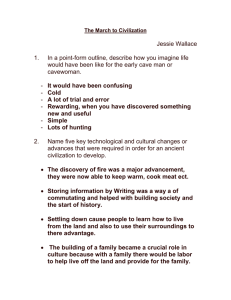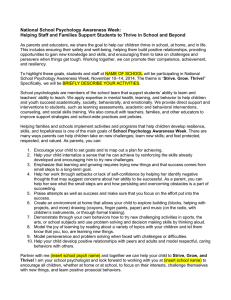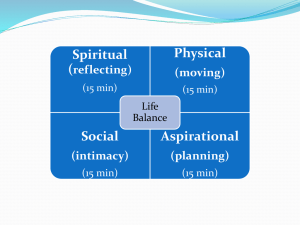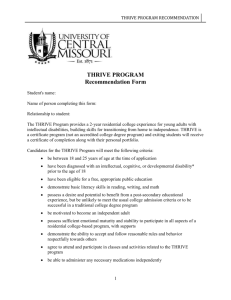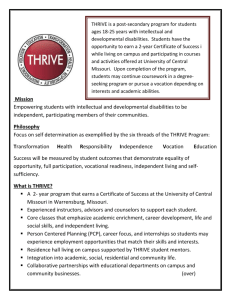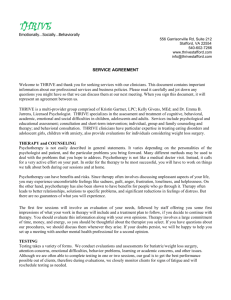Listening and Learning Briefing Document – word version
advertisement
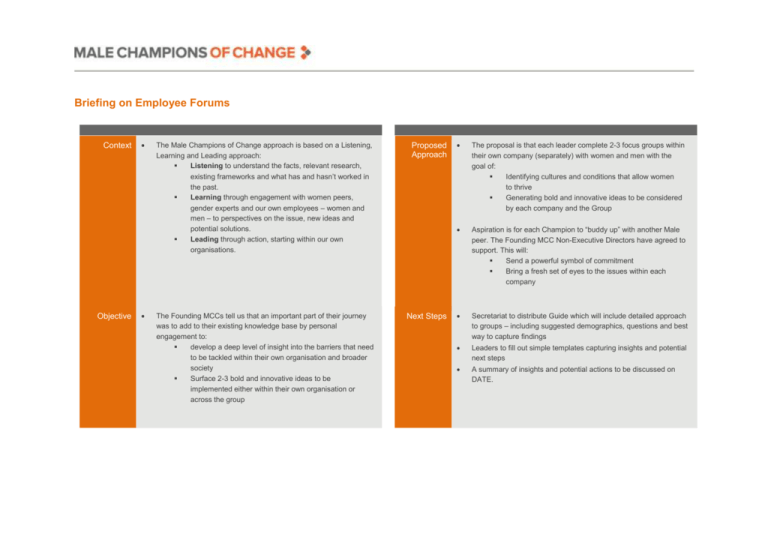
Briefing on Employee Forums Context Objective The Male Champions of Change approach is based on a Listening, Learning and Leading approach: Listening to understand the facts, relevant research, existing frameworks and what has and hasn’t worked in the past. Learning through engagement with women peers, gender experts and our own employees – women and men – to perspectives on the issue, new ideas and potential solutions. Leading through action, starting within our own organisations. Proposed Approach The Founding MCCs tell us that an important part of their journey was to add to their existing knowledge base by personal engagement to: develop a deep level of insight into the barriers that need to be tackled within their own organisation and broader society Surface 2-3 bold and innovative ideas to be implemented either within their own organisation or across the group Next Steps The proposal is that each leader complete 2-3 focus groups within their own company (separately) with women and men with the goal of: Identifying cultures and conditions that allow women to thrive Generating bold and innovative ideas to be considered by each company and the Group Aspiration is for each Champion to “buddy up” with another Male peer. The Founding MCC Non-Executive Directors have agreed to support. This will: Send a powerful symbol of commitment Bring a fresh set of eyes to the issues within each company Secretariat to distribute Guide which will include detailed approach to groups – including suggested demographics, questions and best way to capture findings Leaders to fill out simple templates capturing insights and potential next steps A summary of insights and potential actions to be discussed on DATE. Example from founding Male Champions of Change group – Focus group script “Myself and other MCCs are conducting a series of focus groups within our businesses to understand more deeply the conditions and culture that enable women to thrive and succeed into leadership positions. We have committed to working together to identify and implement 3-5 progressive and high impact actions to ‘change the game’ on the unacceptably low levels of women in our executive positions & pipelines. Our focus will be on listening to understand, identify, respond and institutionalise the conditions and culture that will enable more women to thrive. We will collate the feedback from all of these sessions and develop an action plan that we will commit to within our organisations, while also using our collective influence to achieve change on barriers that might exist at a societal level. I have a few questions / thought starters, but this this session is really about listening to your ideas and feedback.” Questions for Senior Executive women Questions for High Potential Women Questions for Senior Male leaders Thinking about your career – what are the conditions and culture you believe have helped you to perform, develop, progress and thrive? In your life? Within our business / your team? In society? What formal policies within our business do you feel may have supported or inhibited the rate of your advancement? Are there any additional barriers within our organisation that you feel were impediments to your advancement? Are there any obvious barriers within society that were impediments to your advancement? What’s the one or two changes that you believe would make the most significant difference in advancing more women –including future generations - into leadership positions? Thinking about your career and future aspirations – what are the conditions and culture you believe you will need to perform, develop, progress and thrive? In your life? Within our business / your team? In society? Who are the role models you look up to in our business and why? Are there any obvious barriers within our organisation or society that may impact this? What’s the one or two changes that you believe would make the most significant difference in advancing more women into leadership positions? Thinking about the women in your leadership team / pipeline; what are the conditions and culture you believe have helped them to perform, develop, progress and thrive? What do you perceive are the barriers to meaningful gains in women in leadership within our business: Personal? Within our business? In society? What’s the one or two changes that we could make that would make the most significant difference in advancing more women – including future generations - into leadership positions?
